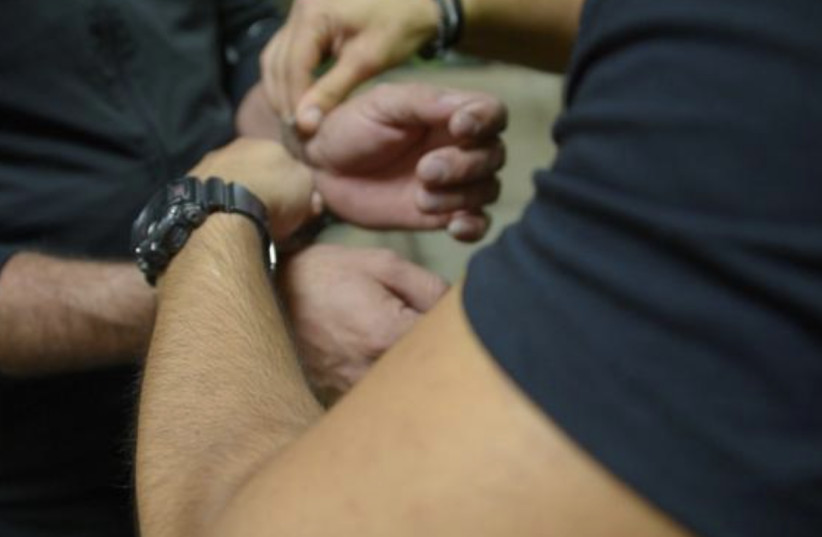In the Central District Court Sunday morning, prosecutors filed an indictment against three young men in their 20s from Petah Tikva, for importing cocaine from Peru via one unorthodox method. 1.4 kilograms of the drug, melted into a wax-like viscous substance, was attached to a carpet sent from South America to a resident of Petah Tikva.
However, back in Peru, a designated drug detection dog overtook this export attempt, and the smuggling was thwarted in close cooperation between the Peruvian police and the Israeli police, the Israel Post Office, and customs. However, in the process, details of the investigation were leaked and prominently published in the Peruvian media to protect the hearts of the Central Unit of the Coastal District investigators, which cracked the affair on its Israeli side.
Peruvian police arrived in Israel with the carpet filled with the substance, which the Coast Guard estimated to be worth more than a million shekels in Israel and here in Israel, the Coast Guard investigators, who employed a variety of tricks while deciphering the smuggling attempt, packed for shipment a carpet similar to the original rug while embedding an advanced surveillance device in it for photography and recording.
Under the supervision of the High Court, messages were sent to the recipient, 25-year-old Aviel Elgarbali, one of the three defendants, about the arrival of the package.
How did three men try to smuggle cocaine to Israel from Peru in a carpet?
The indictment shows that the 23-year-old defendant Tamiro Molla paid the required customs with Elgarbali's credit card, and a police detective, posing as an Israel Postman, handed Elgarbali the package. According to the indictment in front of her, a friend of Elgarbali's transferred the shipment from him to 24-year-old Lior Amona, the main suspect in the affair on the Israeli side. In his apartment, he began to peel off the nylon in which the carpet was wrapped while trying to separate the drug from it.

In the process, he discovered the surveillance device, realizing it had fallen into the trash; before leaving the apartment, he placed the carpet in the building's utility closet and fled the scene. It was too late. The tracking device installed on the carpet was recorded on video with sound as two of the defendants held the carpet and talked about it. At the same time, Amona was suspicious, "How many hands passed, and were the police involved?" This is not exactly what was explained to him," and he "needs to talk to 'the professor' who will explain how to act with the carpet."
He fled to a hiding place until he was arrested by Coast Guard detectives a few days later. The Israel Police said that Amona's father was arrested in Peru, apparently not in connection with this shipment. However, they are still interested in whether he was connected in one way or another. In their investigations at the Criminal Court, all three remained silent, did not respond to the alleged evidence thrown at them, and did not give any version to the investigators.
In Peru, the affair is believed to be part of the war of attrition by the National Anti-Drug Administration in the police, who dismantled the Israeli crime organization known there as "Mustafa," most of whose members are Israelis, and which was involved in exporting large quantities of drugs abroad, while disguising the illegal goods in similar shipments of carpets, which were sent through the port of Callao, near the capital Lima.
The investigation in Peru lasted for many months. The Peruvian police say that those involved in the case owned a mansion, luxurious vehicles, and other expensive assets. In another investigation that ended there last night, 40 kg of cocaine was seized, which was disguised in the packaging of food products such as oatmeal, quinoa, and coffee, apparently en route to Europe via Jorge Chavez International Airport.
Not all the arrested suspects are facing trial. An indictment was filed against Elgarbali only for possessing the drug other than for personal use. Against Faith and Molla only for attempting to possess the drug, in addition to the offense of importation and the violation of obstruction of justice. The suspicion of tying the knot did not materialize into a charge.
Inspector Efi Friedman, deputy head of the investigative team at the Coast Guard, said this morning that "the determined and creative activity of the investigators and detectives of the Coast Guard uncovered a plot to import the dangerous drug into Israel. Along with the cases of murder and serious violence, we continue to operate covertly and openly in the field of thwarting the importation of poisonous drugs to the public, all for the sake of protecting the health and safety of the public."
The prosecutor's office requests the extension of the detention of the three until the end of the legal proceedings against them. Today in two short hearings held by Judge Amit Michals and with the consent of Attorney Shay Nodel representing Amunah, Attorney Shlomi Malka representing Molla, and Attorney Baruch Gada representing Elgarbali, who are studying the investigation file, he scheduled hearings on the merits of the request in a few weeks, and in the meantime extended their detention until another decision.
